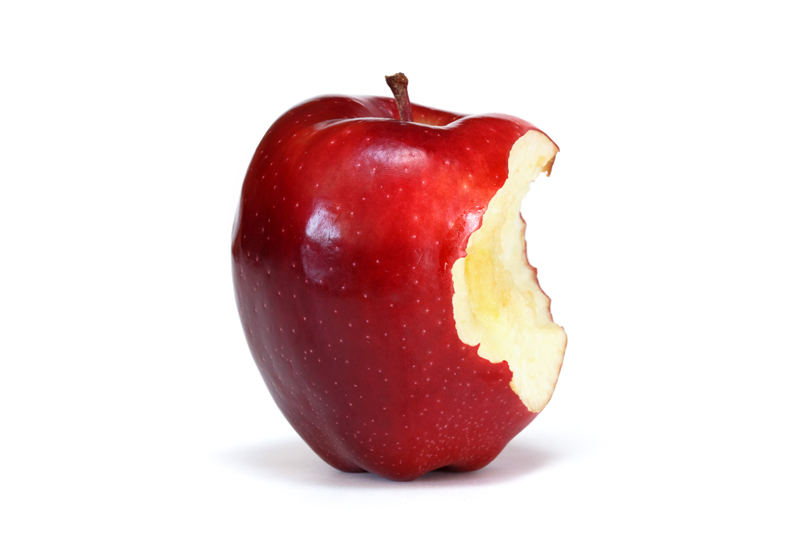Aromatherapy And Herbal Skin Care

Balancing, cleansing, and regenerative, aromatherapy oils and herbs are both excellent for improving the appearance and health of the skin. Used daily, they can improve skin texture, especially that of the face and hands-the areas most exposed to the elements.
Aromatherapy Skin Care
Mix in the items that follow with sweet-almond oil or jojoba oil or an unscented lotion. Apply your mixtures to problem areas, or use for massage. You can also add diluted oils to your bathwater or mix them with water for a compress, but don’t apply undiluted oils, other than tea tree and lavender, directly to the skin.
Recommended dilution: 1% - equaling 9 drops per 1 oz. of base.
Clary sage is soothing and anti-inflammatory. It also helps preserve moisture in dry or mature skin. Do not use this oil during the first 20 weeks of pregnancy.
Cypress, astringent and soothing, may help regulate the production of sebum in oily skin. Do not use this oil during the first 2 weeks of pregnancy.
Eucalyptus is cooling and antiseptic. Use it to treat boils and pimples.
Geranium has astringent and balancing properties. It helps cleanse and tone the skin, reduces inflammation, and can soothe acne, eczema, and minor wounds.
Juniper berry, astringent and cleansing. It is beneficial for acne, oily-skin, and oozing eczema. So not use this oil at any time during pregnancy.
Lavender is antiseptic and anti-inflammatory. It can soothe eczema, sunburn, and insect bits. It also helps promote cell growth and healing, and possibly minimizing scaring.
Peppermint oil cools and cleanses the skin. It can soothe itchy skin, through too much can make the itching worse.
Roman Chamomile is soothing and antiseptic, and good for sensitive or dry skin. It helps heal acne and dermatitis and reduces other types of skin inflammation.
Sandalwood helps soften dry, mature, or wrinkled skin. It may also reduce irritation from sunburn, hives and other rashes.
Tea Tree oil has antiseptic, anti-inflammatory, and anti-fungal properties. It is good for boils and rashes, as well as countering skin infections of all kinds.
Herbal Skin Care
Many herbs are excellent for healing skin conditions. They can ward off infection, relieve pain, and reduce scaring. Use them either in a compress, made by soaking gauze in herbal tea and binding it to the damage area, or in cream or ointment form.
Aloe Vera gel softens and nourishes dry skin and encourages skin regeneration after injury. It also helps prevent “barber’s rash”-the crop of tiny pimples that appear after shaving.
Burdock seeds are cleansing. They’re good for treating, eczema, dermatitis, psoriasis, boils, abscesses and acne.
Chamomile antiseptic has a soothing and anti-inflammatory effect. Chamomile helps simulate skin repair.
Chickweed soothes irritating skin conditions, eczema and psoriasis. It also softens the skin and alleviates itchy rashes and eruptions.
Elderflower, an anti-inflammatory, is a traditional a remedy for ulcers, burns, cuts and wounds. Distilled elderflower water makes an excellent facial toner and cleanser.
Marigold (calendula) is a good first-aid remedy for cuts, burns and bruises, since it combats infection and reduces inflammation.
Rosewater cleanses and tones the skin; smoothes wrinkles and can help clear up acne. It cools the skin by acting as an astringent, aids skin repair and reduces swelling and bruising.
Witch hazel, antiseptic and healing, lessen inflammation and scaring. It is also effective for bruises and irritated varicose veins. Apply straight witch hazel to unbroken skin, but dilute with water for application to broken skin (any stinging will stop quickly).
Diet And Food for Your Skin
Prevent premature ageing of the skin by eating plenty of raw fruits and vegetables. Limits your intake of saturated fats, refined foods, and alcohol, all of which tend to speed skin aging.
Beets and cabbage juices are good blood cleansers and helpful in cases of oily skin prone to acne. Drink half a glass of one of these juices once or twice a day for 10 days.
Carrots are antiseptic and help speed wound healing. Apply cooled carrot broth to your skin to soothe chapping, roughness, and itching.
Cucumber soothes inflamed itchy rashes, such as eczema, and cucumber water also makes an ideal cleaner and toner for oily skin, cut a cucumber into cubes and boil in two pints of water for 15 minutes. Strain and press through a cloth. Put in spray bottle and mist your face or pat on face.
Flaxseeds are rich in omega-3 essential fatty acid, which aids skin health. Apply flaxseed tea to dry skin or add to bath water to soften skin.
Flaxseed Tea 1 tablespoon of crushed seeds per cup of water. Let partially dissolve.
Honey has antiseptic properties, smooth a little over infected skin and rinse.
Raw potato juice is a traditional remedy said to soothe inflammation and helps heal dermatitis, wounds and ulcer. To treat cracked skin, use grated potato mixed with olive oil.
Aromatherapy Skin Care
Mix in the items that follow with sweet-almond oil or jojoba oil or an unscented lotion. Apply your mixtures to problem areas, or use for massage. You can also add diluted oils to your bathwater or mix them with water for a compress, but don’t apply undiluted oils, other than tea tree and lavender, directly to the skin.
Recommended dilution: 1% - equaling 9 drops per 1 oz. of base.
Clary sage is soothing and anti-inflammatory. It also helps preserve moisture in dry or mature skin. Do not use this oil during the first 20 weeks of pregnancy.
Cypress, astringent and soothing, may help regulate the production of sebum in oily skin. Do not use this oil during the first 2 weeks of pregnancy.
Eucalyptus is cooling and antiseptic. Use it to treat boils and pimples.
Geranium has astringent and balancing properties. It helps cleanse and tone the skin, reduces inflammation, and can soothe acne, eczema, and minor wounds.
Juniper berry, astringent and cleansing. It is beneficial for acne, oily-skin, and oozing eczema. So not use this oil at any time during pregnancy.
Lavender is antiseptic and anti-inflammatory. It can soothe eczema, sunburn, and insect bits. It also helps promote cell growth and healing, and possibly minimizing scaring.
Peppermint oil cools and cleanses the skin. It can soothe itchy skin, through too much can make the itching worse.
Roman Chamomile is soothing and antiseptic, and good for sensitive or dry skin. It helps heal acne and dermatitis and reduces other types of skin inflammation.
Sandalwood helps soften dry, mature, or wrinkled skin. It may also reduce irritation from sunburn, hives and other rashes.
Tea Tree oil has antiseptic, anti-inflammatory, and anti-fungal properties. It is good for boils and rashes, as well as countering skin infections of all kinds.
Herbal Skin Care
Many herbs are excellent for healing skin conditions. They can ward off infection, relieve pain, and reduce scaring. Use them either in a compress, made by soaking gauze in herbal tea and binding it to the damage area, or in cream or ointment form.
Aloe Vera gel softens and nourishes dry skin and encourages skin regeneration after injury. It also helps prevent “barber’s rash”-the crop of tiny pimples that appear after shaving.
Burdock seeds are cleansing. They’re good for treating, eczema, dermatitis, psoriasis, boils, abscesses and acne.
Chamomile antiseptic has a soothing and anti-inflammatory effect. Chamomile helps simulate skin repair.
Chickweed soothes irritating skin conditions, eczema and psoriasis. It also softens the skin and alleviates itchy rashes and eruptions.
Elderflower, an anti-inflammatory, is a traditional a remedy for ulcers, burns, cuts and wounds. Distilled elderflower water makes an excellent facial toner and cleanser.
Marigold (calendula) is a good first-aid remedy for cuts, burns and bruises, since it combats infection and reduces inflammation.
Rosewater cleanses and tones the skin; smoothes wrinkles and can help clear up acne. It cools the skin by acting as an astringent, aids skin repair and reduces swelling and bruising.
Witch hazel, antiseptic and healing, lessen inflammation and scaring. It is also effective for bruises and irritated varicose veins. Apply straight witch hazel to unbroken skin, but dilute with water for application to broken skin (any stinging will stop quickly).
Diet And Food for Your Skin
Prevent premature ageing of the skin by eating plenty of raw fruits and vegetables. Limits your intake of saturated fats, refined foods, and alcohol, all of which tend to speed skin aging.
Beets and cabbage juices are good blood cleansers and helpful in cases of oily skin prone to acne. Drink half a glass of one of these juices once or twice a day for 10 days.
Carrots are antiseptic and help speed wound healing. Apply cooled carrot broth to your skin to soothe chapping, roughness, and itching.
Cucumber soothes inflamed itchy rashes, such as eczema, and cucumber water also makes an ideal cleaner and toner for oily skin, cut a cucumber into cubes and boil in two pints of water for 15 minutes. Strain and press through a cloth. Put in spray bottle and mist your face or pat on face.
Flaxseeds are rich in omega-3 essential fatty acid, which aids skin health. Apply flaxseed tea to dry skin or add to bath water to soften skin.
Flaxseed Tea 1 tablespoon of crushed seeds per cup of water. Let partially dissolve.
Honey has antiseptic properties, smooth a little over infected skin and rinse.
Raw potato juice is a traditional remedy said to soothe inflammation and helps heal dermatitis, wounds and ulcer. To treat cracked skin, use grated potato mixed with olive oil.

Related Articles
Editor's Picks Articles
Top Ten Articles
Previous Features
Site Map
Content copyright © 2023 by Victoria Abreo. All rights reserved.
This content was written by Victoria Abreo. If you wish to use this content in any manner, you need written permission. Contact Victoria Abreo for details.



